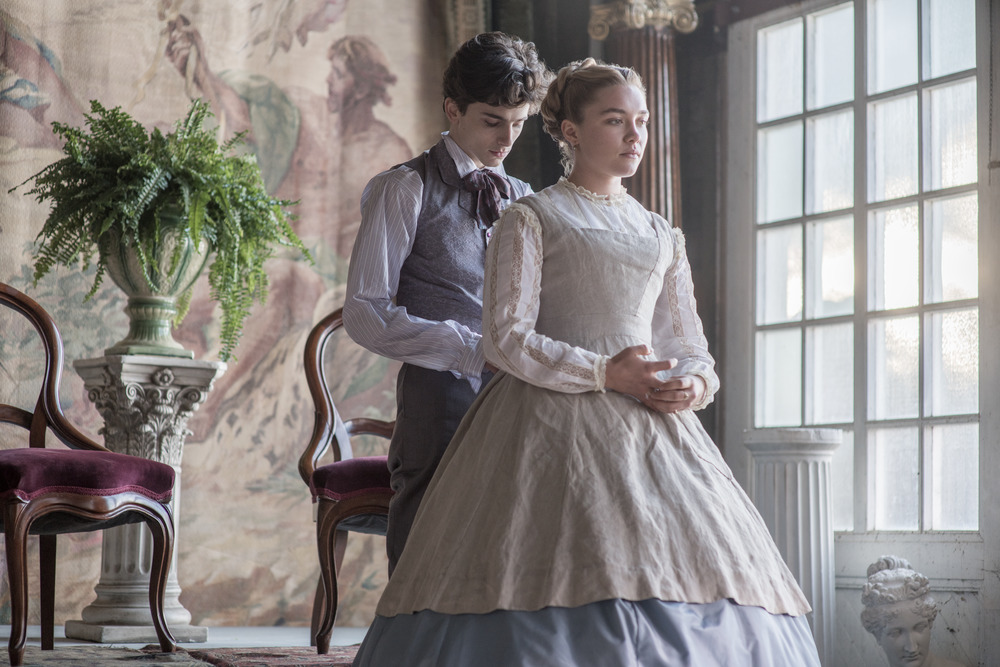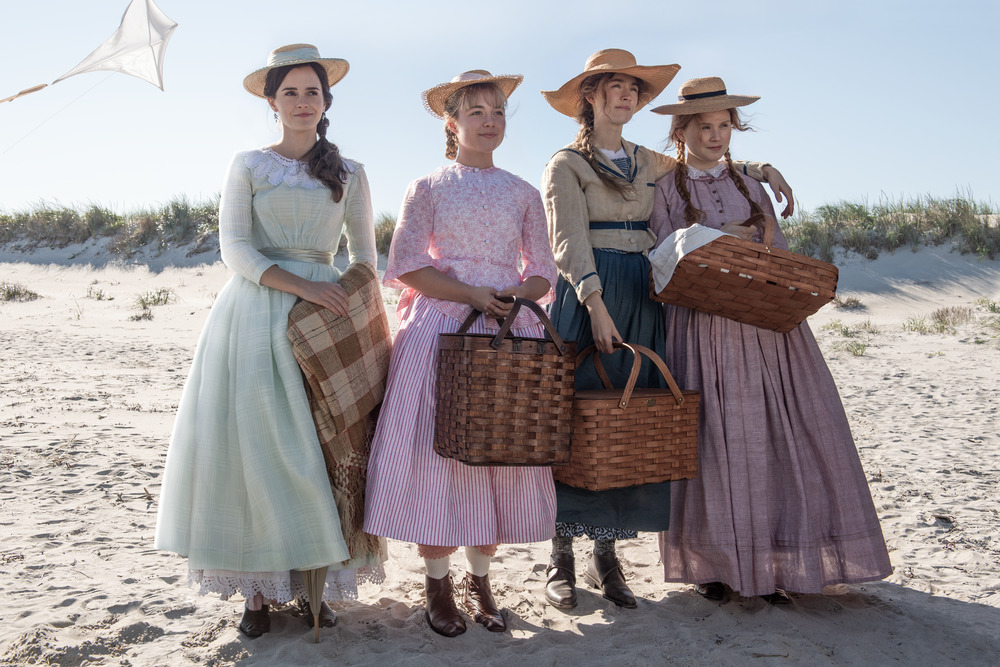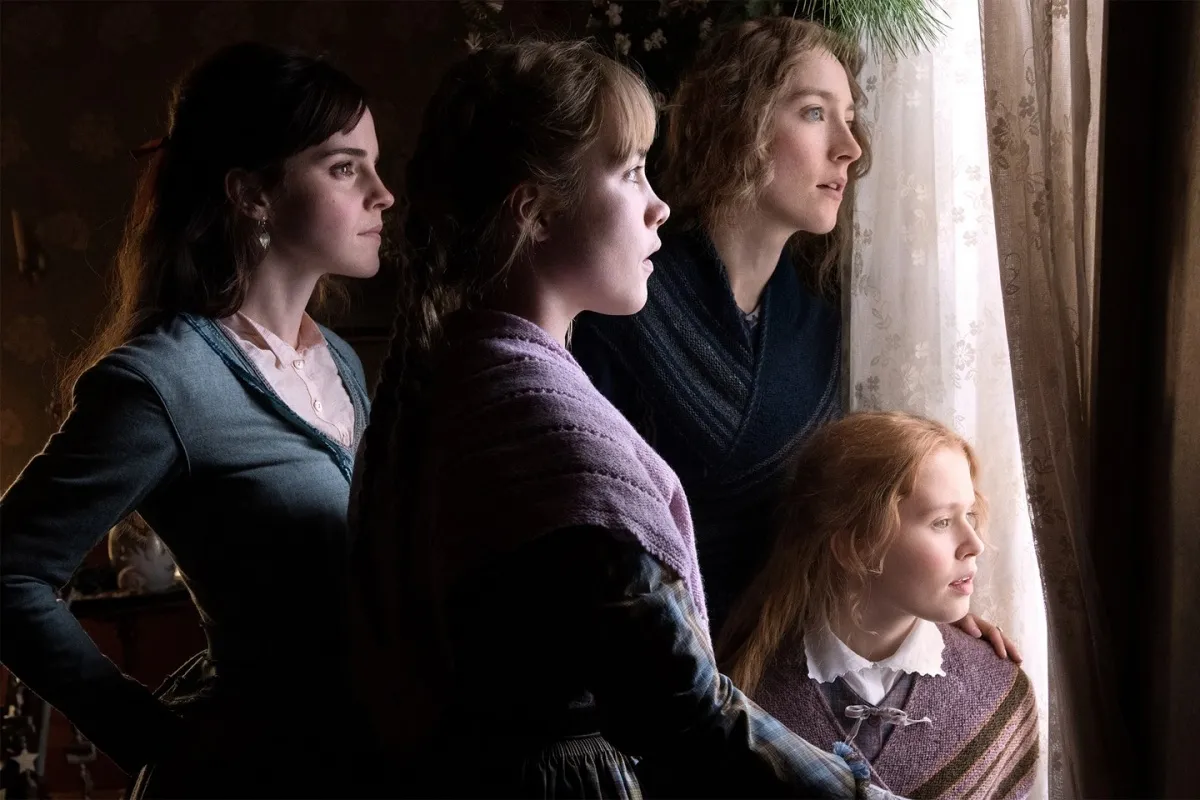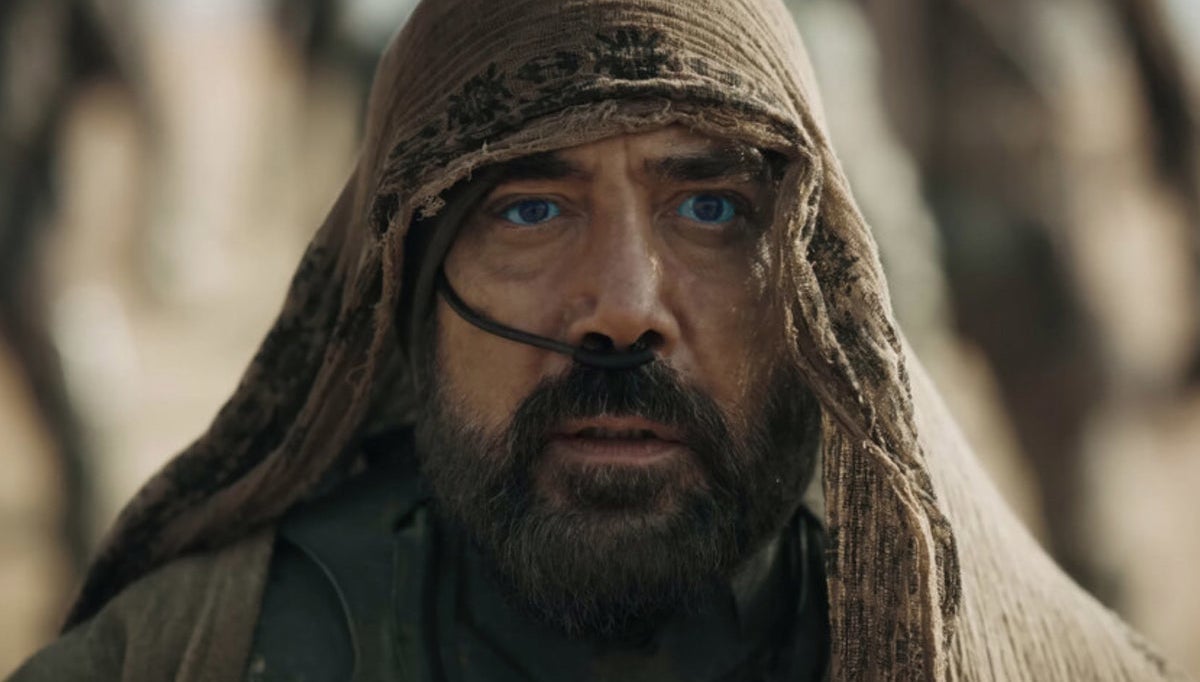In September 1867, Thomas Niles, a publisher, wrote to Louisa May Alcott asking if she would write a book for girls. Alcott wrote in her journal that she “never liked girls or knew many, except [her] sisters.” Alcott took the stories of her sisters, and her strange transcendentalist upbringing, and turned them into the story we know now as Little Women. While several adaptations of the story have made it to the screen, Greta Gerwig’s 2019 version (the 8th) is a perfect retelling of the story and gifts us one of the most talented casts to ever bring Meg, Jo, Beth, Amy, and Laurie to life.
Gerwig chooses to begin the story not at the actual start of the book, but at the beginning of Part II, with Jo (Saoirse Ronan) in New York teaching and writing, attempting to make a living for herself, without marriage, to support her family, Amy (Florence Pugh) on tour with Aunt March (Meryl Streep) trying to grow as an artist and marry a rich man, Meg (Emma Watson) struggling with having married for love to a poor man, and Beth (Eliza Scanlen), who is … sick.
Throughout the story, we bounce back in time, seeing the foundational moments that defined these little women and hitting all the big emotional beats that are iconic to the book. The use of the framing device is one of the best aspects of the story, allowing the narrative to highlight parallel incidents in the characters’ lives and heightening existing emotional moments. Not only does it allow us to focus on themes, but it makes us see the characters as women first, not girls.
Although, I’m sorry, Florence Pugh is a god, but even she can’t pull off being thirteen. I get it; she was cast for adult Amy, not young Amy, but still, it’s just kind of jarring whenever Amy is played by a clear adult in Little Women adaptations.

Timothée Chalamet and Florence Pugh in Little Women (2019)
While I have never had my heart melted by online boyfriend Timothée Chalamet, I thought he did a masterful job of being sweet, boyish Laurie and also the more brooding, bad-boy Laurie. Unlike a lot of films before it, this adaptation is not in love with Jo/Laurie so much that it can’t allow Amy/Laurie to be sweet and charming. There is a natural, playful, intense chemistry between Chalamet and Pugh that is an excellent contrast to Saoirse Ronan and Louis Garrel’s more naive, awkward relationship, as it explores Jo and Professor Friedrich Bhaer.
Supporting cast Meryl Streep, Laura Dern as Marmee March, and Chris Cooper as Mr. Laurence all do well with what they’re given. Everyone is at their best—yes, even Emma Watson. Her accent does notably slip every now and then, but she brings a real delightful charm to Meg. There is just so much good here it may seem almost excessive, but Greta Gerwig just happens to be so excellent at her job that she can make scenes that have been rendered to the screen seven times before seem fresh and interesting. Gerwig understands that these characters are interesting because they are imperfect and doesn’t shame them for it. Instead, they are allowed to grow into better people through introspection and kindness. Imagine that.
Her dialogue is sharp and witty, highlighting what made Alcott’s book stand out in the first place, and elevates it so that every impassioned speech makes you feel the weight of the characters’ lives all within the two hours we have spent with them. This is definitely Saorise Ronan and Florence Pugh’s movie, in the best ways possible, and I think they will probably be the definitive incarnation of generations (although Katherine Hepburn’s Jo will always be my favorite).

Emma Watson, Saoirse Ronan, Florence Pugh, and Eliza Scanlen in Little Women (2019)
When the cast and trailer were first released, I talked about how white the movie looked and my disappointment in that, and despite my positive review, that disappointment still stands. Throughout the film, there are only two non-white people who speak, both Black, one a train attendant and the other a freed Black woman who makes pointed commentary with Marmee about the state of the union. Despite the fact that this book takes place during the Civil War, the issue of slavery is never called out by name, just alluded to as the great shame of this country.
In many of the big emotional moments, Gerwig pulls not just from the original text, but also from Louisa May Alcott’s own letters in order to create some powerful speeches. The clip that has been going around of Jo talking about how women have minds is not completely from the book, but a mixture of the source material Alcott’s own real-life words. These choices just make me frustrated that the aspects of Alcott that were part of her abolitionist mindset didn’t get the same treatment.
I’d rather put those thoughts into a different piece, but in preparation for watching this film, I read Meg, Jo, Beth, Amy: The Story of Little Women and Why It Still Matters by Anne Boyd Rioux, and I thought about how the book has been touted as a universal girls’ story that has been passed on for generations, and I just feel like the whiteness of the characters is not what makes the story great; it is the human relationships and the focus on young women at the edge of adulthood dealing with great tragedy. I’d love for that universality to be reflected in the casting, as well.
Still, this is probably the best film version of Little Women, and with it, Greta Gerwig has brought a new level of beauty, charm, and Amy March excellence to the story.
(image: Wilson Webb/Sony)
Want more stories like this? Become a subscriber and support the site!
—The Mary Sue has a strict comment policy that forbids, but is not limited to, personal insults toward anyone, hate speech, and trolling.—










Published: Dec 17, 2019 12:14 pm